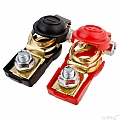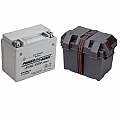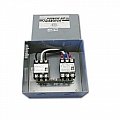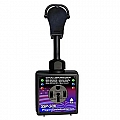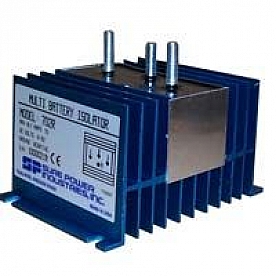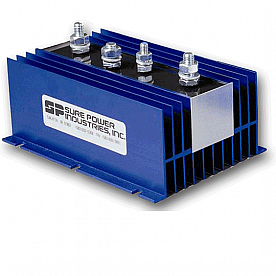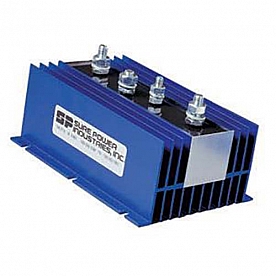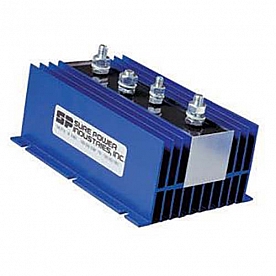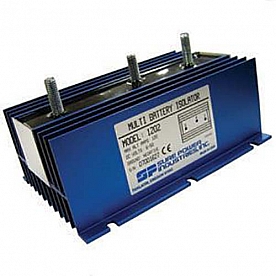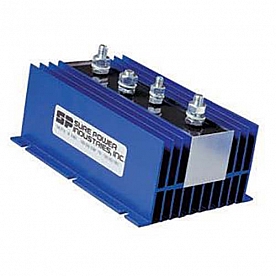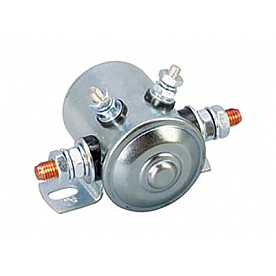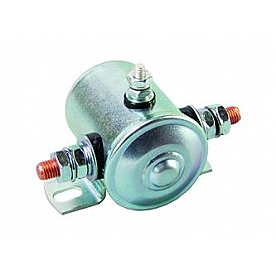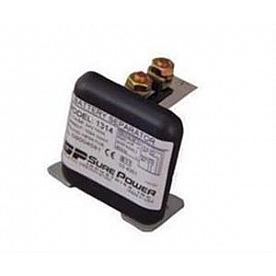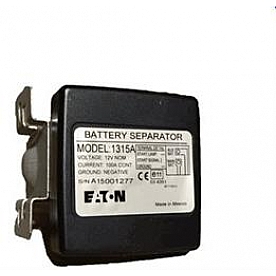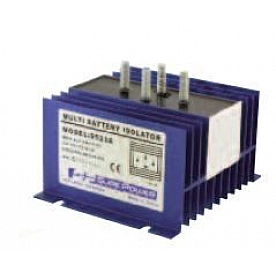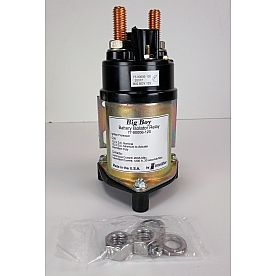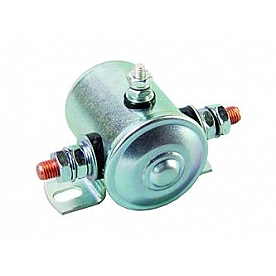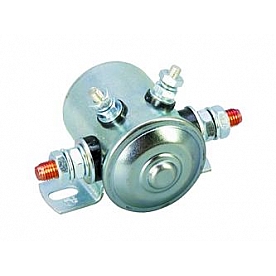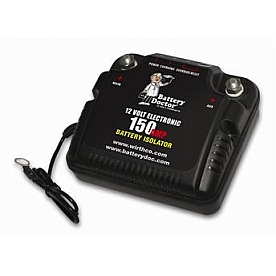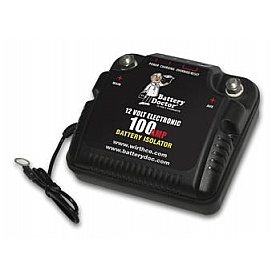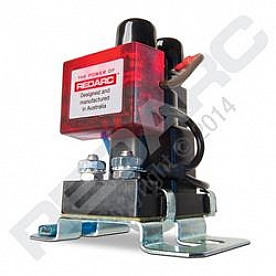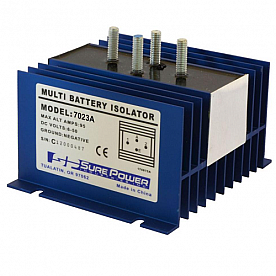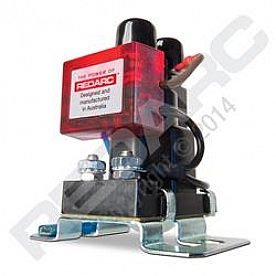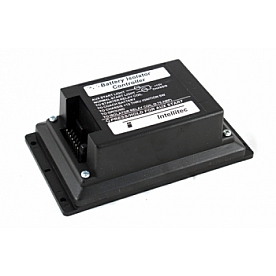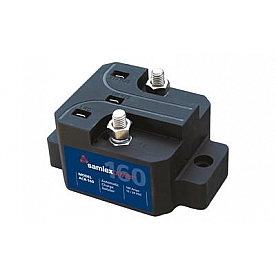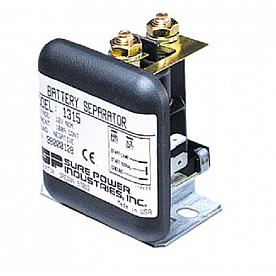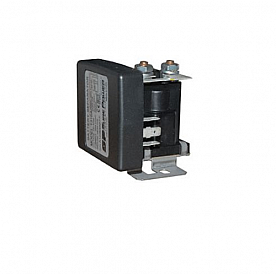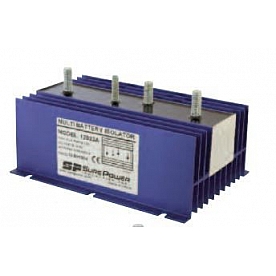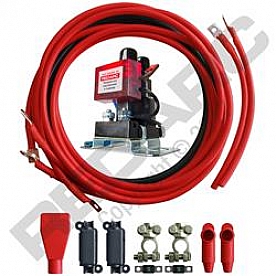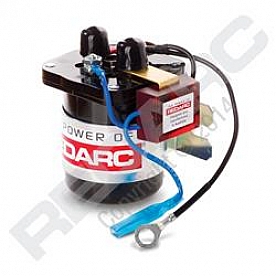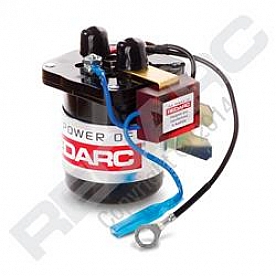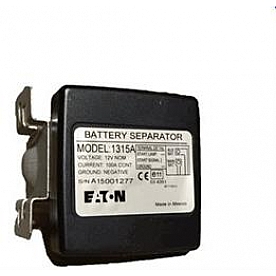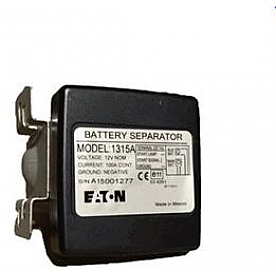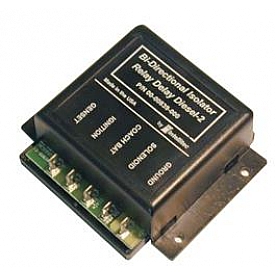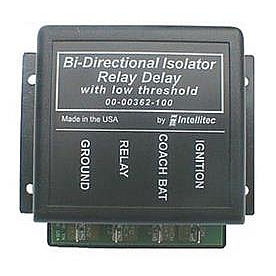1 - 32 of 38 results
⬤ Out Of Stock
Amperage
95 Amp
Includes Fuse
No
Includes Solenoid
No
Includes Switches
No
Used With
Eliminate Multi-Battery Drain When 2 Or More Battery Banks Are In A Charging System
⬤ Out Of Stock
Amperage
160 Amp
Used With
Eliminate Multi-Battery Drain When 2 Or More Battery Banks Are In A Charging System
⬤ Special Order
Amperage
120 Amp
Includes Fuse
No
Includes Solenoid
No
Includes Switches
No
Used With
Eliminate Multi-Battery Drain When 2 Or More Battery Banks Are In A Charging System
⬤ Out Of Stock
Amperage
120 Amp
Includes Fuse
No
Includes Solenoid
No
Includes Switches
No
Used With
Eliminate Multi-Battery Drain When 2 Or More Battery Banks Are In A Charging System
⬤ Out Of Stock
Amperage
80 Amp
Includes Solenoid
No
Used With
12 Volt Battery For Charging And Isolating Functions/ Metal Frame Ground Systems
Showing 1 - 32 of 38 Products
RV Isolators are electrical devices specifically designed to manage the power between the alternator or generator and the auxiliary batteries in a Recreational Vehicle (RV). They primarily prevent power from draining out of the primary battery while simultaneously directing power to secondary batteries when the vehicle is running.
RV isolators are mainly categorized into three types: diode-based isolators, solenoid-based isolators, and smart battery isolators.
1. Diode Based Isolators: These are the most common types of RV battery isolators. They allow electricity to flow in one direction - from the alternator to the batteries. They stop the electricity from the batteries to flow back to the alternator.
2. Solenoid Based Isolators: Solenoid-based isolators work using heavy-duty relay. They are very robust and can handle high power loads.
3. Smart Battery Isolators: These isolators are advanced versions of solenoid-based isolators. They can handle the power loads even more efficiently. Moreover, they will only connect the primary and auxiliary batteries when the primary battery is fully charged.
Advantages of RV Isolators:
1. Power Management: They ensure the primary battery doesn't run out of power by controlling the flow of electricity between batteries and the alternator.
2. Better Efficiency: By keeping the batteries at optimal levels, they help in extending the life of the batteries.
3. Reduces Risk: By controlling the flow of electricity, they reduce the risk of overcharging the batteries, which could lead to severe damage.
4. Advanced Technology: Smart battery isolators come with advanced technology that can automatically sense the charge level of batteries and act accordingly.
5. Cost-Efficient: RV isolators are often more cost-effective in the long run. They prevent unnecessary battery replacements due to poor power management.
6. Easy To Install: Most RV battery isolators are easy to install and don't require much technical expertise.
7. Versatility: These isolators are versatile and can work with different types of vehicles, not just RVs.
8. Increased Battery Lifespan: RV isolators efficiently manage the charging and discharging process, significantly increasing the lifespan of the batteries.
9. Uninterrupted Power Supply: Even when the RV's engine is not running, an isolator ensures that there's still an uninterrupted power supply for various equipment and appliances.
RV isolators are mainly categorized into three types: diode-based isolators, solenoid-based isolators, and smart battery isolators.
1. Diode Based Isolators: These are the most common types of RV battery isolators. They allow electricity to flow in one direction - from the alternator to the batteries. They stop the electricity from the batteries to flow back to the alternator.
2. Solenoid Based Isolators: Solenoid-based isolators work using heavy-duty relay. They are very robust and can handle high power loads.
3. Smart Battery Isolators: These isolators are advanced versions of solenoid-based isolators. They can handle the power loads even more efficiently. Moreover, they will only connect the primary and auxiliary batteries when the primary battery is fully charged.
Advantages of RV Isolators:
1. Power Management: They ensure the primary battery doesn't run out of power by controlling the flow of electricity between batteries and the alternator.
2. Better Efficiency: By keeping the batteries at optimal levels, they help in extending the life of the batteries.
3. Reduces Risk: By controlling the flow of electricity, they reduce the risk of overcharging the batteries, which could lead to severe damage.
4. Advanced Technology: Smart battery isolators come with advanced technology that can automatically sense the charge level of batteries and act accordingly.
5. Cost-Efficient: RV isolators are often more cost-effective in the long run. They prevent unnecessary battery replacements due to poor power management.
6. Easy To Install: Most RV battery isolators are easy to install and don't require much technical expertise.
7. Versatility: These isolators are versatile and can work with different types of vehicles, not just RVs.
8. Increased Battery Lifespan: RV isolators efficiently manage the charging and discharging process, significantly increasing the lifespan of the batteries.
9. Uninterrupted Power Supply: Even when the RV's engine is not running, an isolator ensures that there's still an uninterrupted power supply for various equipment and appliances.
